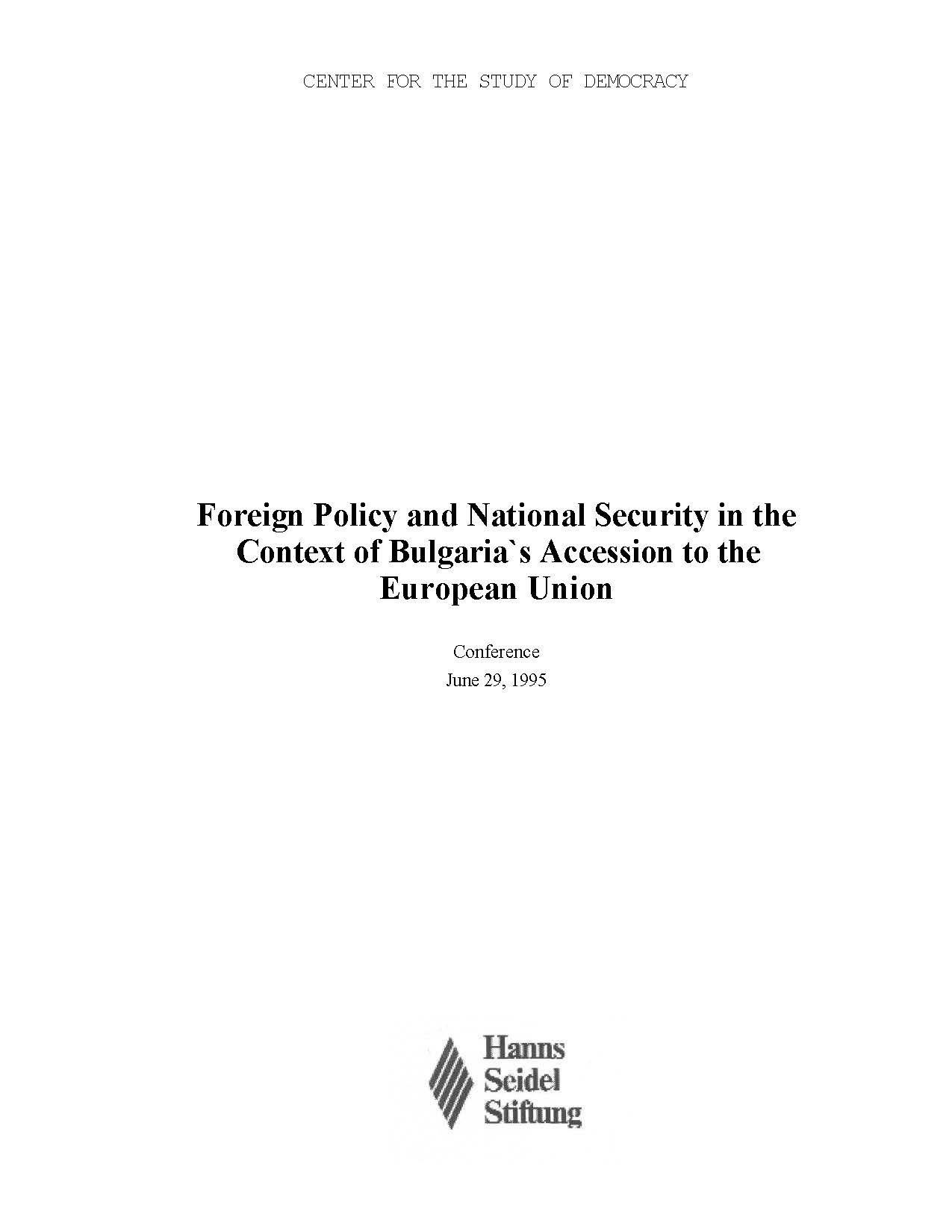
Foreign Policy and National Security in the Context of Bulgaria`s Accession to the European Union
The text includes the conference proceedings of the event held on 29 June 1995.
More...We kindly inform you that, as long as the subject affiliation of our 300.000+ articles is in progress, you might get unsufficient or no results on your third level or second level search. In this case, please broaden your search criteria.

The text includes the conference proceedings of the event held on 29 June 1995.
More...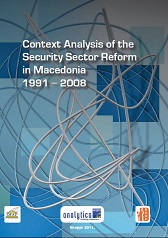
This paper looks at the general political and security sector context in the last two decades since Macedonian independence, and traces the major trends and events that shaped the political developments and progress with security sector reforms in post-communist Macedonia. For the purpose of this paper, the analysis of the post-communist transition period is divided in three parts, corresponding to the three periods on which we divided the context since 1991, for the sake of greater clarity and analytical coherence. For each of these three periods, we conducted an analysis of major political developments as well as institutional change. Based on this analysis, each period is qualified as characterised by a specific nature, whether post-authoritarian, conflict, postconflict, or integrationist. In the Annex attached to this paper, a short overview of the key political actors and their role in the security sector reforms and the political transition in Macedonia is offered. The first period analyzed is the period from the declaration of independence from Yugoslavia, in 1991 until the ethnic conflict in 2001. These years mark the first decade of independent statehood and democratic politics in Macedonia. The second period stretches from the ethnic conflict in 2001 until the NATO Summit in Bucharest in early 2008. The 2001 conflict had a profound impact on the political and security context in Macedonia. It produced inter-ethnic violence and culminated in a far-reaching reform of the constitutional and institutional set-up of Macedonian democracy.
More...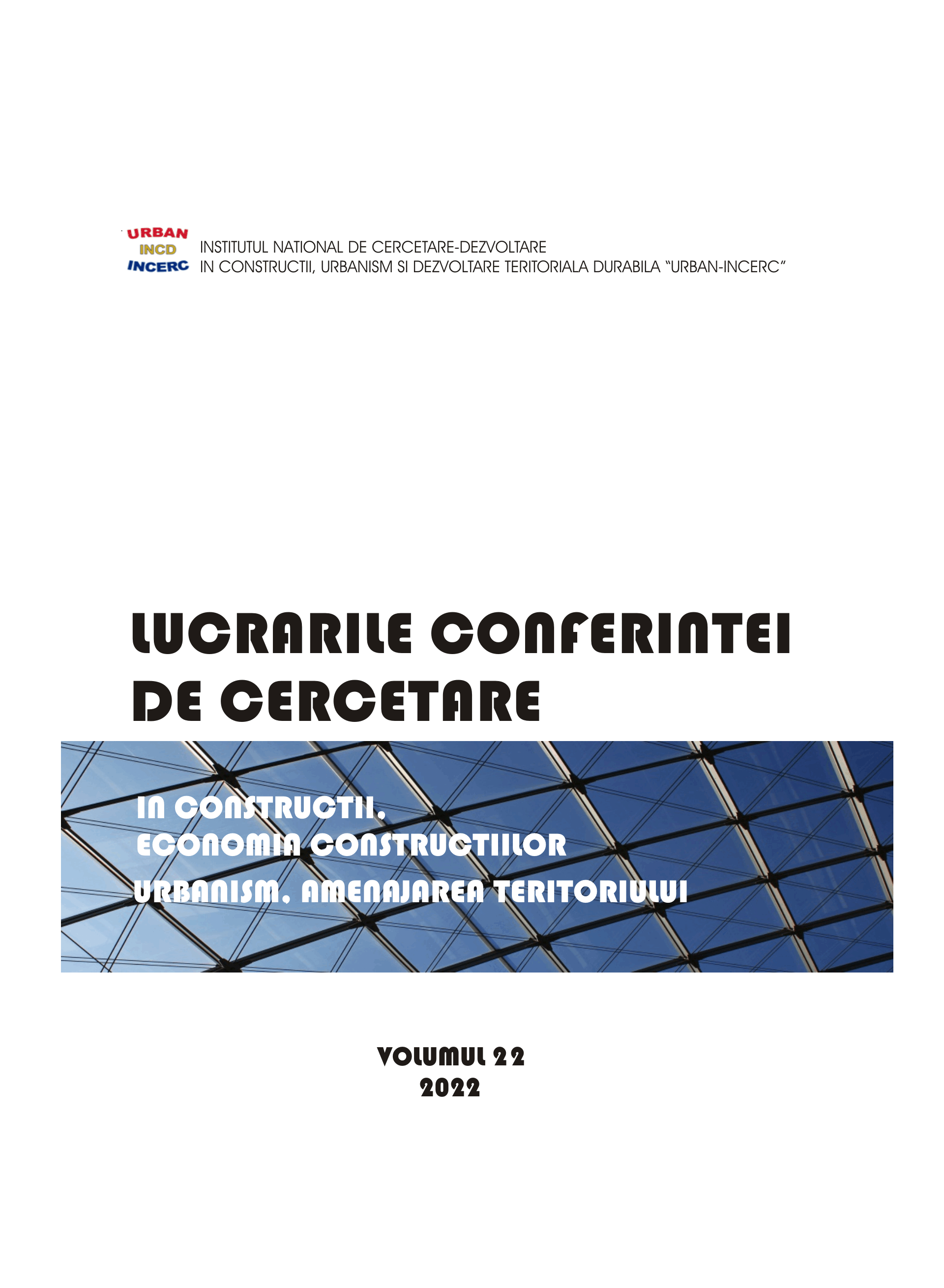
In recent decades, Iraqi historical cities have witnessed substantial urban and social changes that have turned them into unattractive places for living and investment, and where development potential has been ignored. The weakness of strategic plans regarding the consideration of the present urban development strategies has led to the random growth of the city, the distortion of cultural heritage sites and the quality of life in cities, generating social and environmental problems. That is why there is a need for the foundation of a territorial development strategy of Iraq and the studied area - the Diyala region and the city of Baquba, which is in accordance with the objectives of sustainable development at the world level and with modern urban regeneration approaches, which implies the improvement of the historical identity and cultural. The outcome of the development strategy of Dyala region and Baquba city must reflect the objectives of sustainable development and have a clear vision and strategic objectives in the short and medium term.
More...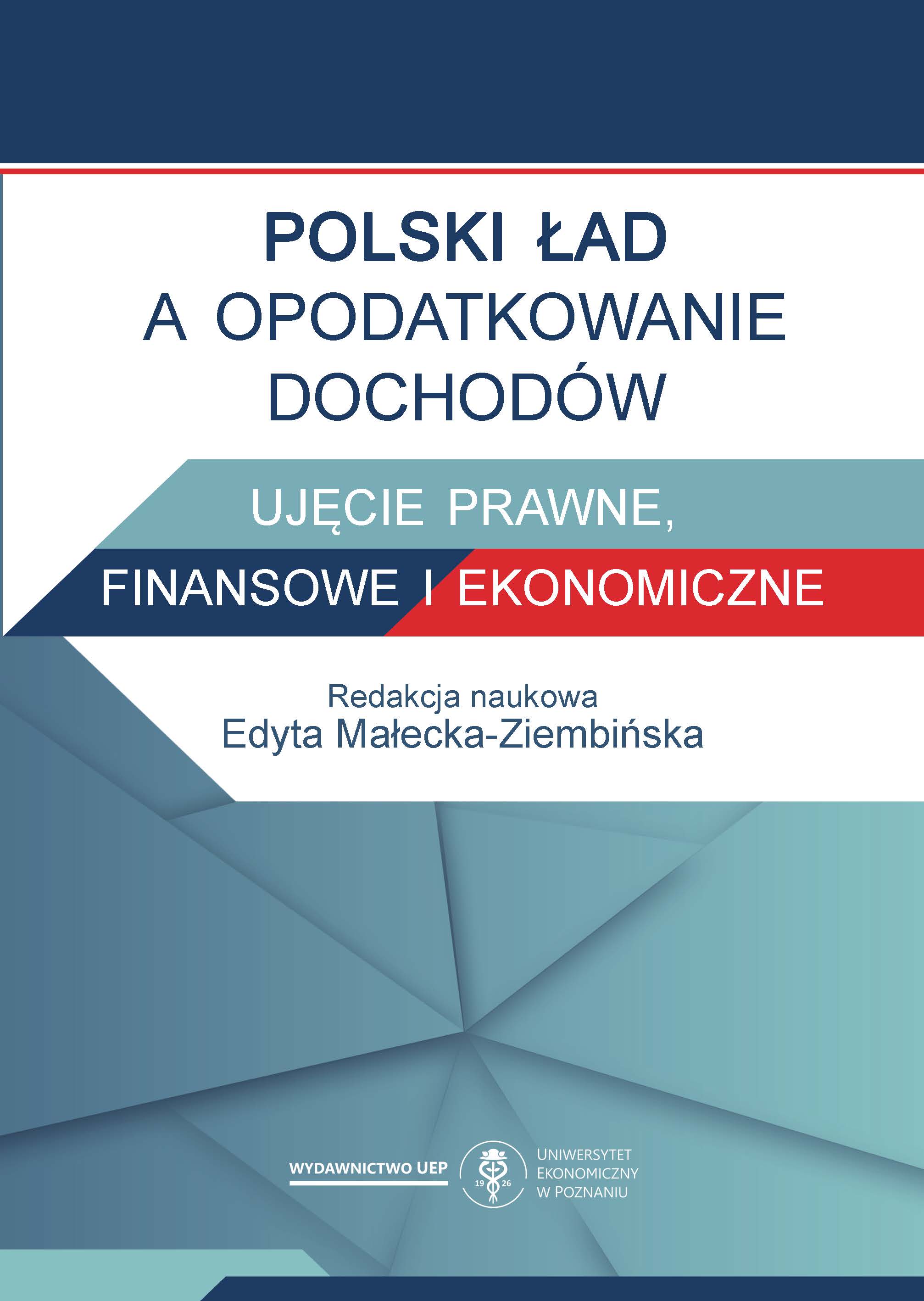
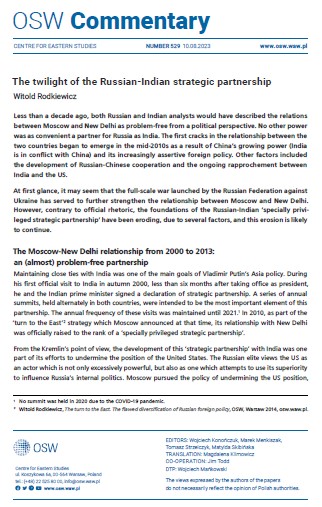
Less than a decade ago, both Russian and Indian analysts would have described the relations between Moscow and New Delhi as problem-free from a political perspective. No other power was as convenient a partner for Russia as India. The first cracks in the relationship between the two countries began to emerge in the mid-2010s as a result of China’s growing power (India is in conflict with China) and its increasingly assertive foreign policy. Other factors included the development of Russian-Chinese cooperation and the ongoing rapprochement between India and the US. At first glance, it may seem that the full-scale war launched by the Russian Federation against Ukraine has served to further strengthen the relationship between Moscow and New Delhi. However, contrary to official rhetoric, the foundations of the Russian-Indian ‘specially privileged strategic partnership’ have been eroding, due to several factors, and this erosion is likely to continue.
More...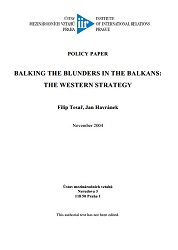
Since the beginning of the 1990s, the West was obliged to deal with several crises in the Balkans and pledged to a complete reconstruction of the post-war situation in the region. During this demanding process, the Western countries however maximised their traditional stereotyped attitudes towards the Balkan countries. Both the European Union and the United States have typecast the Balkan states according to the extent of the internal problems of these states, and according to their own ability to deal with such issues. Despite the good intentions behind the acting of the West, this process resulted in a mixture of shambolic strategies that have made the Western presence in the region very complicated. The West has been gradually loosing its military and managing respect, given its reluctance to pursue the proclaimed objectives. Such disinclination to act has played into the hands of the local bosses, who very soon found out how the system can be abused in order to satisfy both their electorate and the Western custodians. Nowadays, it is clear that such a hesitant attitude of the West towards the Balkans is no longer sustainable. A significant change in the Western strategy towards the Balkan countries is required, should the integration of the Balkans into the Western structures (i.e. NATO, EU) be successful.
More...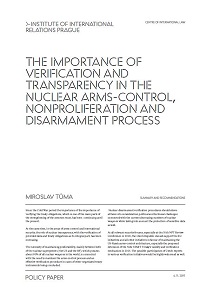
Since the Cold War period the importance of the importance of verifying the treaty obligations, which is one of the main parts of the strengthening of the common trust, has been continuing until the present. At the same time, in the areas of arms-control and international security, the role of nuclear transparency, with the verification of provided data and treaty obligations as its integral part, has been increasing. The necessity of maintaining predictability, mainly between both of the nuclear superpowers (the US and the RF), which possess about 90% of all nuclear weapons in the world, is connected with the need to maintain the arms-control process and an effective verification procedure in cases of other negotiated treaty instruments being concluded. Nuclear disarmament verification procedures should above all take into consideration political and technical challenges connected with the current decreasing numbers of nuclear weapons while taking into account the protection of sensitive data as well. At all relevant security forums, especially at the 10th NPT Review Conference in 2020, the Czech Republic should support the EU initiatives and all other initiatives in favour of maintaining the US-Russia arms-control architecture, especially the proposed extension of the New START Treaty’s validity and verification mechanism in 2021. The possible participation of Czech experts in various verification initiatives would be highly welcomed as well.
More...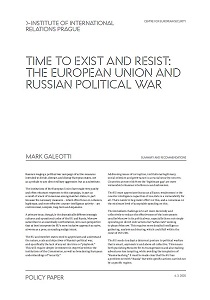
Russia is waging a political war campaign of active measures intended to divide, distract, and dismay European states, not as a prelude to any direct military aggression but as a substitute. The institutions of the European Union have made very patchy and often reluctant responses to this campaign, in part as a result of a lack of consensus among member states, in part because the necessary measures – which often focus on cohesion, legitimacy, and more effective counter-intelligence activity – are controversial, complex, long-term and expensive. A primary issue, though, is the dramatically different strategic cultures and operational codes of the EU and Russia. Moscow subscribes to an essentially confrontation, zero-sum perspective that at best interprets the EU’s more inclusive approach as naive, at worse as a pose, concealing malign intent. The EU and member states need to appreciate and understand the nature, scale and objectives of Russia’s political war, and specifically the lack of any set doctrine or “playbook.” This will require deeper investment in expertise within the institutions of the Commission, as well as broadening European understandings of “security.” Addressing issues of corruption, institutional legitimacy, social cohesion and governance is a crucial security concern. Countries at most risk from the ‘legitimacy gap’ are more vulnerable to Russian interference and subversion. The EU must appreciate that as an alliance, weaknesses in the counter-intelligence capacities of one state is a vulnerability for all. There needs to be greater effort on this, and a consensus on the minimum level of acceptable spending on this. The immediate challenge is to act more decisively and collectively to reduce the effectiveness of the instruments used by Moscow in its political war, especially those not simply operating on direct instructions but “adhocrats” seeking to please Moscow. This requires more detailed intelligence gathering, analysis and sharing, which could fall within the remit of INTCEN.
More...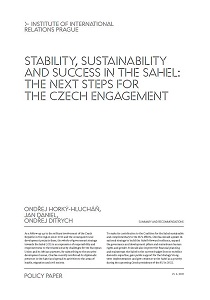
As a follow-up up to the military involvement of the Czech Republic in the region since 2013 and the consequent rural development projects there, the whole-of-government strategy towards the Sahel (G5) is an expression of responsibility and responsiveness to the related security challenges for the European Union and its African partners. By subscribing to the security-development nexus, Czechia recently reinforced its diplomatic presence in the Sahel and spread its activities to the areas of health, migration and civil society. To make its contribution to the Coalition for the Sahel sustainable and complementary to the EU’s efforts, Czechia should update its national strategy to build the Sahel’s forward resilience, expand the governance and development pillars and mainstream human rights and gender. It should also improve the financial planning and mainstream the Sahel in the current budget lines to mobilise domestic expertise, gain public support for the Strategy’s long-term implementation and give credence to the Sahel as a priority during the upcoming Czech presidency of the EU in 2022.
More...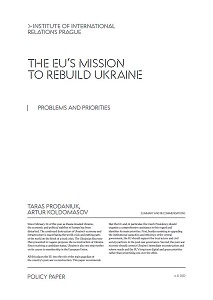
Since February 24 of this year, as Russia invaded Ukraine, the economic and political stability in Europe has been disturbed. The continued destruction of Ukraineʼs economy and infrastructure is exacerbating the world crisis and putting parts of the world on the brink of a food crisis. The Ukrainian Recovery Plan presented in Lugano proposes the reconstruction of Ukraine. Since receiving a candidate status, Ukraine is also one step further on its course to membership in the European Union. All this places the EU into the role of the main guardian of the countryʼs post-war reconstruction. This paper recommendsthat the EU and, in particular, the Czech Presidency should organize a comprehensive assistance in this regard and identifies its main priorities. First, besides assisting in upgrading the institutional capacities and efficiency of the central government, the EU should support the local actors and civil society partners in the post-war governance. Second, the post-war recovery should connect Ukraineʼs immediate reconstruction and reform needs and the EUʼs long-term digital and green priorities rather than prioritizing one over the other.
More...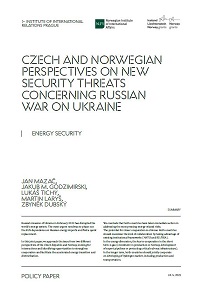
Russia’s invasion of Ukraine in February 2022 has disrupted the world’s energy system. The most urgent need was to phase out the EU’s dependence on Russian energy imports and find a quick replacement. In this joint paper, we approach the issue from two different perspectives of the Czech Republic and Norway, looking for intersections and identifying opportunities to strengthen cooperation and facilitate the accelerated energy transition and diversification. We conclude that both countries have taken immediate action in addressing the most pressing energy-related risks. The potential for closer cooperation is obvious. Both countries should maximise the level of collaboration by taking advantage of existing institutional frameworks (NATO and EU/EEA). In the energy dimension, the key to cooperation in the short term is gas (investment in production in Norway, development of export pipelines or protecting critical sub-sea infrastructure). In the longer term, both countries should jointly cooperate on developing of hydrogen market, including production and transportation.
More...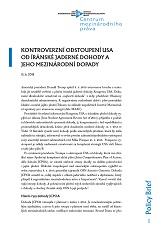
On May 8, 2018, US President Donald Trump went through with his threat and, this time, has not submitted his certification of the implementation of the Iranian nuclear agreement to the US Congress for approval. According to Trump, the document is the “worst deal” of Obama Democratic administration. He made his negative decision despite Iranʼs positive performance in the inspections by the International Atomic Energy Agency (IAEA).
More...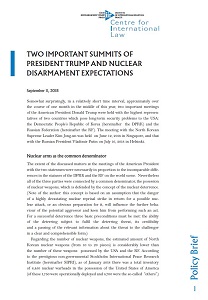
Somewhat surprisingly, in a relatively short time interval, approximately over the course of one month in the middle of this year, two important meetings of the American President Donald Trump were held with the highest representatives of two countries which pose long-term security problems to the USA: the Democratic People’s Republic of Korea (hereinafter the DPRK) and the Russian Federation (hereinafter the RF). The meeting with the North Korean Supreme Leader Kim Jong-un was held on June 12, 2018 in Singapore, and that with the Russian President Vladimir Putin on July 16, 2018 in Helsinki.
More...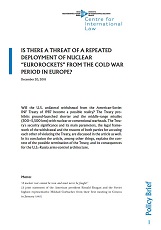
Will the U.S. unilateral withdrawal from the American-Soviet INF Treaty of 1987 become a possible reality? The Treaty prohibits ground-launched shorter and the middle-range missiles (500–5,500 kms) with nuclear or conventional warheads. The Treaty´s security significance and its main parameters, the legal framework of the withdrawal and the reasons of both parties for accusing each other of violating the Treaty, are discussed in the article as well. In its conclusion the article, among other things, explains the context of the possible termination of the Treaty, and its consequences for the U.S.-Russia arms-control architecture.
More...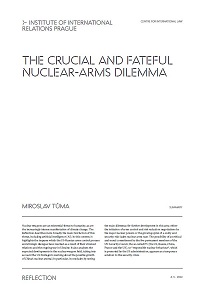
Nuclear weapons are an existential threat to humanity, as are the increasingly intense manifestation of climate change. The Reflection describes more broadly the main risk factors of this threat, including artificial intelligence (AI). In this context, it highlights the impasse which the US-Russian arms control process and strategic dialogue have reached as a result of their strained relations and the ongoing war in Ukraine. It also analyses the expected developments in the nuclear weapon field, taking into account the US Pentagon’s warning about the possible growth of China’s nuclear arsenal. In particular, it concludes by noting the main dilemmas for further development in this area: either the initiation of arms control and risk reduction negotiations by the major nuclear powers or the growing spiral of a costly and security-risk-laden nuclear arms race. The possibility of an ethical and moral commitment by the five permanent members of the UN Security Council, the so-called P5 (the US, Russia, China, France and the UK), to “responsible nuclear behaviour“, which is promoted by the US administration, appears as a temporary solution to this security crisis.
More...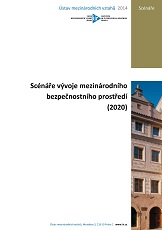
The document discusses the complexity of the global security environment and the emergence of hyper-risks due to interconnected anthropogenic systems. It suggests increasing resilience against hyper-risks by dividing existing systems into smaller units and creating circuit breakers to prevent cascading global reactions. The publication explores creative thinking about the future without precise probabilistic predictions, acknowledging the sudden and unexpected nature of significant events in complex systems, famously termed "black swans" by Nassim Taleb. It also examines geopolitical risks, the relative decline of US power, and the potential for a G-zero World scenario. The project's methodology is based on the complexity of the security environment, rejecting precise probabilistic forecasts and instead offering internally consistent hypotheses about future developments to aid in strategic thinking.
More...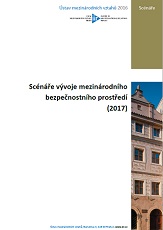
Držíte v rukou závěrečnou studii vznikající v rámci projektu TA ČR Scénáře mezinárodního bezpečnostního prostředí. Uzavírá se jí tříletý cyklus kolektivních spekulací týmu soustředěného v Ústavu mezinárodních vztahů o možnostech vývoje tohoto prostředí. Projekce, které vznikly jako výstupy těchto spekulací, nemají ambici být přesnými předpověďmi. Vysoká komplexita mezinárodního bezpečnostního prostředí jako systému, kde dochází k dynamické interakci množství předem daných skutečností, hybných sil a kritických neznámých, možnost takové předpovědi téměř vylučuje. Naše scénáře sledují jiný cíl: kombinací prediktivního (jaká budoucnost bude) a explorativního (jaká budoucnost může být) přístupu a záměrnou vícečetností podobně pravděpodobných projekcí vývoje v každém sektoru bezpečnostního prostředí být nástroji tvořivého promýšlení možných budoucností, rozšiřování horizontu úvah o tom, jak přispět k naplňování jejich z hlediska české zahraniční politiky nejvýhodnějších variant a zkoušení zažitých předpokladů o tom, co bezpečnostním prostředím, ve kterém se Česká republika nachází, hýbe.
More...
In Bosnia and Herzegovina, the seventh local elections since the signing of the Dayton peace agreement were held on 15 November 2020. The elections brought about tectonic changes on the political scene and are a prelude to the announced political changes at the parliamentary elections, scheduled to take place on 2 October 2022. Political changes had also led to success in North Macedonia, with the arrival of Zoran Zaev (SDSM) to power. Zaev took his country to membership in NATO and it is expected that Macedonia will soon open the accession talks with the European Union. The Brussels Dialogue between the official Belgrade and Priština is entering its final phase. In Montenegro, the recent parliamentary elections resulted in the fall of the 31- years long regime headed by Milo Đukanović (DPS), which was an introduction into groundbreaking political changes and stabilization of the situation in Bosnia and Herzegovina.
More...
Governments across the globe are increasingly using digital tools to accelerate the tracking of people infected with COVID-19 and their contacts as a key measure to prevent the pandemic’s spread. Among potential solutions, contact tracing mobile applications have emerged as the most used and discussed, and it is likely that many governments, including Serbia’s, will include them in national public health efforts. Nevertheless, issues of privacy and data protection, and low public trust and user acceptance can prevent these apps from being used, which is why Serbia’s government needs to ensure a good understanding and respect of citizens’ concerns before proceeding with the implementation of one. Given the comprehensive EU-level discussions towards finding the best possible common solution aligned with the Union’s robust personal data protection policies, little can go wrong if Serbia follows European approaches. This can also help rea rm the country’s pro-European orientation.
More...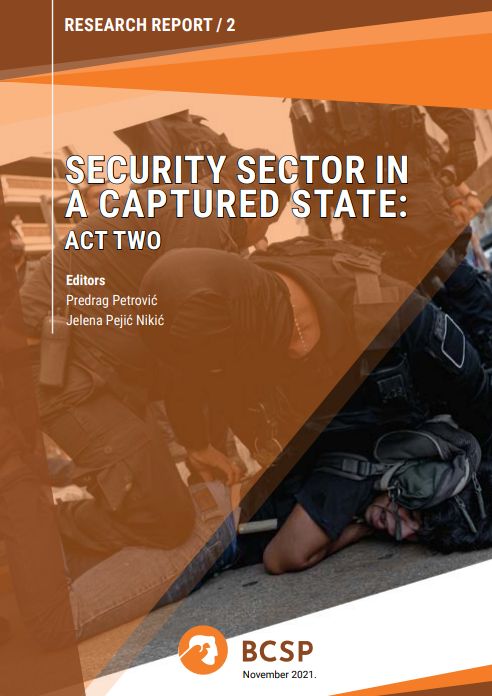
Due to the damage that state capture causes to the public interest, it is very important to investigate and closely monitor this process in the security sector of Serbia. The Belgrade Centre for Security Policy was the first organisation in the country to point out this negative process and the role that the security sector plays in it. It has conducted its first research on this topic, the findings of which can be found in a study entitled “Capturing the Security Sector of Serbia”. The study in front of you is a continuation of that research. In it, we monitored and documented further state capture and the role of security institutions in that negative process. The research covered the period from the beginning of 2020 to November 2021. It explained the political context of capturing the state, the security services, the police, the army and the Ministry of Defence, within which we analysed the capture of special-purpose [arms] industry and parliamentary oversight of the security sector. Considering the fact that actors who participate in state capture are trying to secure international support for their endeavor, and that they are also making use of the experiences of other captured states, we have analysed the foreign policy aspect of capturing the state, which is a novelty compared to earlier research.
More...